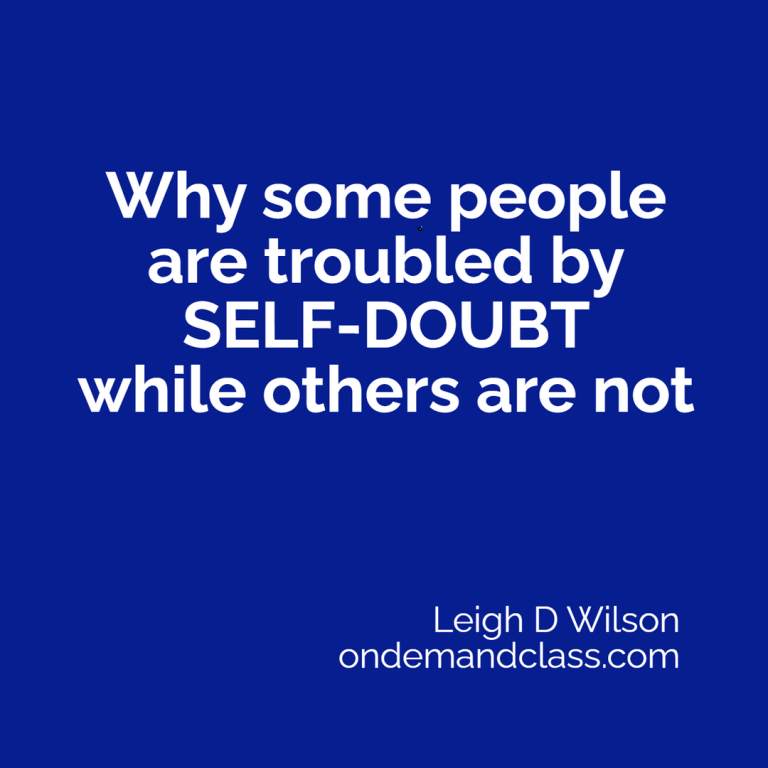Self-doubt is a common experience for many people, but why do some people struggle with it more than others? While there’s no one-size-fits-all answer to this question, there are several factors that can contribute to self-doubt.
- Childhood Experiences: Our childhood experiences can shape our beliefs and attitudes towards ourselves and the world around us. If we grew up in an environment where we were criticized, judged, or belittled, we may develop negative beliefs about ourselves and our abilities. These negative beliefs can contribute to self-doubt later in life, even if we’ve achieved success and accomplished our goals.
- Personality Traits: Some people are more prone to self-doubt due to their personality traits. For example, individuals who are highly conscientious and perfectionistic may be more likely to doubt themselves and their abilities, as they set high standards for themselves and are more likely to be self-critical.
- Life Transitions: Major life transitions, such as starting a new job, getting married, or becoming a parent, can trigger self-doubt. During these transitions, we may be faced with new challenges and uncertainties, which can lead to feelings of self-doubt and anxiety.
- Social Comparison: Social comparison is a natural human tendency to compare ourselves to others. When we compare ourselves to others who we perceive as more successful, accomplished, or talented, we may feel inadequate and doubt ourselves.
- Negative Self-Talk: Negative self-talk is an internal dialogue that can undermine our confidence and self-esteem. When we engage in negative self-talk, we may reinforce self-doubt and limit our potential for success.
Seeking support from a professional mindset coach or therapist can help you identify the underlying causes of self-doubt and develop strategies to overcome it. By reframing your mindset, building self-awareness, and practicing self-care, you can overcome self-doubt and achieve your full potential.
Remember, self-doubt can be influenced by negative beliefs and experiences that we formed in childhood, but it’s possible to change these beliefs and overcome self-doubt. With the right strategies and professional support, you can build your confidence and achieve your personal and professional goals.
If you want some help in letting go of your self-doubt, maybe we should chat.
#selfdoubt #anxiety #stress #worry #overwhelm #fear #procrastination #selfesteem #selfconfidence #emptiness #loneliness #failure #sadness #guilt #selftalk #burnout #shorts











